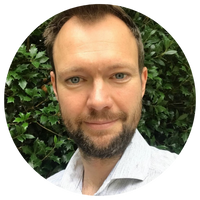We’ll hear from leading international researchers, policy makers and practitioners who’ll share innovative approaches to turn evidence into action for babies and young children.
Keynote Presentations
Find out more about our keynote presentation topics and speakers below.
Click the drop down box to learn more about each speaker.
Universality without Uniformity: Appreciating High-Quality Practices in Low-Resource Settings
Junlei Li will speak about the power of everyday interactions in early childhood. From observing orphanages and impoverished neighbourhoods, he learned to appreciate caregivers’ ordinary yet powerful interactions. He’ll draw on his co-developed Simple Interactions approach which encourages, enriches, and empowers interactions around children and their helpers.

Junlei Li, Ph.D. is the Program Chair of the Human Development and Education and the Saul Zaentz Senior Lecturer in Early Childhood Education at Harvard Graduate School of Education. As a developmental psychologist, his research and practice focus on supporting the helpers – those who serve children and families on the frontlines of education and social services. Studying orphanages, child care, schools, youth programs, he co-develops the “Simple Interactions” approach to help affirm what ordinary people do extraordinarily well with children in everyday moments. His work is significantly inspired by the pioneering work of Fred Rogers when he served as the Co-Director and Rita M. McGinley Chair for Early Learning and Children’s Media at the Fred Rogers Center.
You can read more about Junlei’s work here.
Designing Evidence-Based Parenting Support for Impact at Scale
Louise will speak about the scale of the challenge in closing the gap in early years outcomes in the UK. This will take a sector-wide effort drawing on the best evidence about what works, while staying focused on the parents we’re seeking to support, and designing services to be attractive and accessible to reduce barriers to engagement. Louise will draw on a range of examples of promising approaches and share insights from Nesta’s recent work.
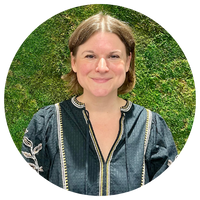
Louise is Deputy Director of Nesta’s Fairer Start mission, which aims to eliminate the school readiness gap between disadvantaged children and their peers in the UK. Louise’s work is particularly focused on adapting and scaling evidence-based parenting support. Previously Louise worked in Nesta’s Alliance for Useful Evidence as part of the team establishing What Works for Children’s Social Care, which is now part of Foundations. Before she joined Nesta, Louise worked at the NSPCC and Demos.
You can read more about Louise’s work here.
The Oxford Brain Story: Embedding an understanding of the importance of the early years for lifelong health across health, social care, education and the criminal justice system
Louise Dalton will be presenting her programme of work called the Oxford Brain Story. She will share how she has used the Brain Story metaphors to embed an understanding of how our earliest experiences can affect long term mental and physical health. Engaging partners across health, social care, criminal justice system, education, policy makers and the community, she has aimed to establish a shared scientific understanding across sectors and a shared language to talk about the impact of adversity. Louise will discuss her different methods for dissemination and implementation as well as quantitative and qualitative evaluation.
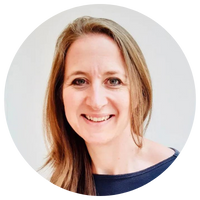
Dr Louise Dalton is Associate Professor & Consultant Clinical Psychologist at the University of Oxford’s Department of Psychiatry.
In addition to partnering with Dr Elizabeth Rapa and the Palix Foundation on the Oxford Brain Story, Louise’s research group is also currently investigating effective communication with children about their own or an important adult’s illness, and reducing depression in the next generation of adolescents by targeting depression in their parents.
You can read more about Louise’s work here.
A playful retrospective on the power of play for young children and children living in contexts of conflict and crisis
Paul will playfully reflect on the last 5-years of LEGO Foundation funding in humanitarian settings. He will demonstrate what the foundation is learning, specifically about how play has positively influenced young children, children, caregivers, and teachers living in context affected by conflict and crisis. He will demonstrate how play must be an essential ingredient of all humanitarian action and policy for children, to help create a sense of normalcy, sense of hope, reinforce strong bonds and relationships, and reinforce well-being, development, and learning. He concludes by highlighting how the LEGO Foundation is integrating these learnings in the new “Children on the Move” strategy to enhance outcomes for children in the next 5 years.

Paul Frisoli, Ed.D. is the Team Lead for the LEGO Foundation humanitarian portfolio, called Children on the Move. He provides people and functional knowledge leadership on play-based Mental Health & Psychosocial Support (MHPSS), and social-emotional learning (SEL), and Early Childhood Development programming, research, and advocacy in conflict and crisis settings.
Before joining the LEGO Foundation, Paul worked with a range of NGOs on designing, implementing, and researching play-based mindfulness, MHPSS, SEL, and well-being interventions across a range of humanitarian contexts. His doctoral research explored the connections between teachers’ continuous professional learning communities and their social-emotional well-being in acute conflict settings.
He enjoys playing, a lot!
Workshops
Find out more about our workshop topics and speakers below.
Click the drop down box to learn more about each speaker.
Innovative approaches in the development of parenting support: Moving beyond manualised programmes
Traditionally evidence-based parenting programmes have been delivered by following a manual which ensures fidelity to the tried and tested model. Whilst this works in many instances, there are challenges in scaling and sustaining manualised programmes, and they don’t always meet the needs of different communities.
In this workshop Caroline White will talk about Invest in Play who co-create their parenting programmes with local communities to provide the most current and culturally appropriate, research-based interventions to support parents.
Beth Barker will discuss PEDAL’s Golden Threads project, which uses a Common Elements approach to understand more about the ingredients of parenting interventions, to help those who might want to adapt and develop evidence-informed parenting support.
Speakers:
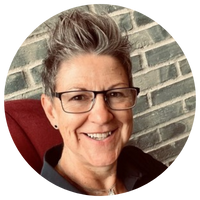
Dr Caroline White is Founder and Director of Invest in Play, an international, not-for-profit organisation with a mission to support children and their caregivers around the world.
Caroline is a consultant clinical psychologist and has a proven track record of implementing effective, evidence–based interventions with young children and their families. She has supported the development of award-winning services and their workforces in many countries. She is an international consultant, trainer and keynote speaker. She was Specialist Advisor to the UK government on early intervention.
You can read more about Caroline’s work here.
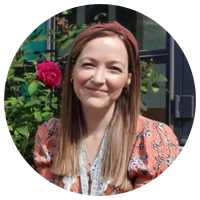
Beth is a Research Associate at PEDAL. She’s interested in supporting babies, toddlers, and families in the first years of life, translating research to real-world impacts, and promoting children’s own voices in research.
You can read more about Beth’s work here.
Innovative approaches to support language development and the home learning environment
Strong speech and language development in young children is associated with better concurrent and future wellbeing and academic achievement. In this session, Professor Jenny Gibson will present her research findings that demonstrate the connections between a high-quality early language and communication environment in the home and children’s later school readiness and literacy outcomes in key stage 2.
Rob Newton will talk about Early Talk for York, a city-wide evidence-informed approach to improve speech, language and communication of children aged 0 to 5 years.
Speakers:

Rob Newton is Local Evidence Lead and Early Years Innovation Lead, City of York Council.
Rob comes from a background of teaching and school leadership and has spent the last 6 years working in local government across the diverse early years sector with a particular focus on improving outcomes for children in the first 5 years of their lives. He is particularly interested in place based, collaborative approaches and a relentless focus on high quality implementation as a crucial ingredient for success.
You can read more about Rob’s work here.
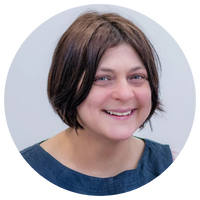
Jenny is Professor of Neurodiversity and Developmental Psychology at the Faculty of Education, and co-director of PEDAL. Her work at PEDAL focuses on investigating the role of play in children’s social development, and the rigorous development of meaningful and reliable ways to measure play.
Jenny also leads a research team investigating the question ‘what is play?’.
You can read more about Jenny’s work here.
Innovative ways to use technology to support parent-child interaction
Technology offers new ways for us to support parents to provide stimulating, nurturing care to their children.
In this workshop, Rob Hughes will talk about Tandem, a ground-breaking app which uses AI to support active engagement between parents and children. Tandem enables children to create their own interactive stories and to explore them with their parent or caregiver.
Paul Ramchandani, Eloise Stevens and Lauren Liotti and Zhen Rao from Nesta will talk about PEDAL’s Playtime with Books programme, which uses an online platform and video feedback to support booksharing between parents and young children.
Speakers:
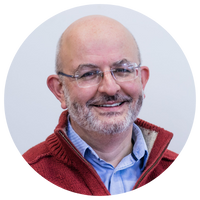
Paul is LEGO Professor of Play in Education, Development and Learning, and the Director of PEDAL. He leads a research team investigating the role of play in children’s early development. He also works as a Consultant Child and Adolescent Psychiatrist in the UK National Health Service.
His research is focused on early child development with a particular interest in how we give children the best start in life, including the prevention of emotional and behavioural difficulties. Much of this work has explored the role of fathers, as well as mothers, in children’s lives and development.

Eloise is a Research Associate and a Child Therapist. Her current research interest lies in the development and testing of early years parenting programmes for both virtual delivery, and for different types of caregivers.
Eloise works with Prof Paul Ramchandani and Dr Christine O’Farrelly on the Play in Early Life team.
Her current projects include the development and testing of a virtual adaptation of a book sharing programme with young children, to promote language development and support the parent-child relationship (titled Playtime with Books). She is also examining the effectiveness of a video-feedback parenting programme (VIPP) in increasing caregiver sensitivity with different populations.
Eloise has been a trial co-ordinator and clinical supervisor on a number of different studies, testing video-feedback approaches with parents of children with behavioural difficulties, foster carers, parents with personality disorders, parents experiencing perinatal mental health problems, and teachers in primary schools.


Zhen joined Nesta’s A Fairer Start team in 2022 as Senior Researcher. She has been working on projects that aim to support parenting and home learning environment, and children’s developmental outcomes. Zhen’s work has involved collaborating with various stakeholders, including academics, local authorities, charity organisations, and policy makers.
Using young children’s perspectives in research and practice
Understanding young children’s perspectives and priorities, views and values can give us new insights which enable us to improve the help and support that we provide to them and their families.
In this workshop we will share PEDAL research which uses playful methods to elicit the perspectives of young children and to better understand their experiences of school and hospital. We will share the learning from a project with Home-Start in London to embed babies’ and young children’s perspectives into their work.
Emerald and Kuri will discuss a research study titled ‘My Play Life: A Qualitative Study of Children’s Play in Bangladesh’ jointly undertaken by the BRAC Institute of Educational Development (BRAC IED) and PEDAL. The presentation will focus on the explorative research journey taken to discover children’s perceptions and experiences of children of play in diverse settings of Bangladesh, including climate-vulnerable communities and Rohingya Refugee Camp. The insights gained from this research are transforming BRAC IED’s practices, leading to more child-centred and child-led interventions.
Speakers:

Emerald Upoma is working as the lead of the Design Team at BRAC Institute of Educational Development. Her works promote play-based learning for children and adolescents through design projects, play-based learning programs, research, teaching, etc. She is in continuous pursuit of finding affordable design solutions for children and adolescents which help them learn and heal. Co-creation with children and communities is a core aspect of her team’s work process. She believes that design can be an impactful tool in responding to the social, cultural, and economic crisis of the context in which it takes place. Her interests include environmentally sustainable building technology, traditional and local building methods, community-led art, craft and design processes, etc. Emerald Upoma received her Bachelor of Architecture Degree in 2014 from BRAC University, Bangladesh, and her M.Sc. degree in Urban Strategic Spatial Planning in 2016 from KU Leuven, Belgium.
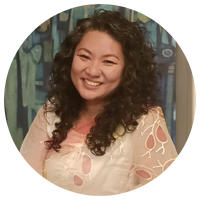
Kuri is a Senior Program Specialist at BRAC Institute of Educational Development (IED). Her main focus is to design programs that promote play and healing among children, adolescents and their caregivers in a humanitarian context. Currently, Kuri is leading interventions for 0-3 year old Rohingya children and their parents.
In addition, she is part of the BRAC academic program. She provides technical support internationally and contributes to a variety of educational projects with BRAC International and national authorities. Kuri has experience of working in various international development organisations over the last 14 years, mainly in the non-formal education sector.

Stephen is a Senior Research Associate with PEDAL and an Associate Member of the REAL Centre, University of Cambridge. His research focuses on education for adaptability and how children in low-income settings develop skills like creativity and problem solving.
You can read more about Stephen’s work here.

Beth is a Research Associate at PEDAL. She’s interested in supporting babies, toddlers, and families in the first years of life, translating research to real-world impacts, and promoting children’s own voices in research.
You can read more about Beth’s work here.
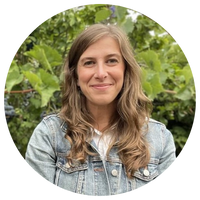
Kelsey is a Postdoctoral Research Associate whose work focuses on the role of play in children’s health and wellbeing. Her PhD explored children’s perspectives amidst early health adversity, including the COVID-19 pandemic and paediatric hospitalisation. Kelsey’s research emphasises children’s rights, participation, and play, and considers those factors in relation to children’s experiences of health and healthcare.
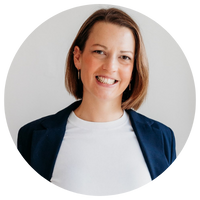
Sally is PEDAL’s Senior Policy Fellow. She has had a varied career in charities and national and local governments, leading teams to develop and implement interventions for families in the early years, and campaigning successfully to drive policy change. Sally joined PEDAL from the Parent-Infant Foundation, where she was Deputy CEO and the creator and first chair of the First 1001 Days Movement, a campaigning alliance of over 200 charities and professional bodies.
Prior to this, Sally’s roles included Strategic Lead at the Maternal Health Alliance, Senior Commissioner in a Local Authority, and Development Manager for Children Under One at the NSPCC. Sally started her career as a Civil Servant working on Children’s Policy in Westminster and, for a short time, in New South Wales, Australia.
She has authored a range of influential policy reports relating to the importance of the earliest years of life and issues affecting families during that time.
Common Elements approaches to support early childhood development
Common Elements approaches find the common ingredients of evidence-based programmes. This can help us to understand the ingredients of programmes that are important in driving change for children, and when and how they work. Common Elements work can help us adapt and develop existing evidence-based programmes, and to identify strategies that could be used by practitioners in their wider day-to-day work with families.
In this workshop we will hear about two projects using a common elements approach: the Department of Health and Social Care’s “Workforce Pilots”, and PEDAL’s Early Years Library for early education settings.
Speakers:

Emma Cook is Senior Clinical Lead for the 0-19 Clinical Programmes Unit of the Chief Public Health Nurse Directorate at the Department of Health and Social Care.

Dr Stephanie Smith is a senior research specialist with a varied 15-year career spanning academic, voluntary sector, and frontline healthcare roles.
Stephanie has taught quantitative research methods, epidemiology, and statistics at postgraduate level, worked closely with UK health policy experts to bridge the research-policy-practice gap, and supported vulnerable young adults in an NHS community mental health service. She played a key role in the setup of a landmark school-based cohort study of adolescent mental health in inner-city London – the REACH study, investigating risk and protective factors for mental health among young people from diverse backgrounds. Stephanie has also coordinated several Patient and Public Engagement and Involvement (PPIE) initiatives, including for the Children and Families Policy Research Unit (CPRU) at University College London (UCL).
You can read more about Stephanie’s work here.
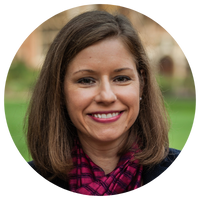
Sara is a Professor of Developmental Psychology and Education.
Her research aims to improve children’s lives by identifying factors at home and at school that can support their agency over their own learning. This includes studying the interaction between developing executive functions and the acquisition of domain-specific knowledge, like early science learning.
You can read more about Sara’s work here.
Innovative ways to support decision makers to use evidence in national and local systems
Sharing the evidence is only one small part of driving evidence-informed changes to policy and practice. In this workshop we will hear about work being done to support local and national decision makers to use evidence, data and insights to deliver change for children.
Becky Saunders from Foundations will talk about their work to support local systems to improve services for families with young children. Sally Hogg from PEDAL will present on the Mobilise programme, an innovative programme to support policy makers to understand and use knowledge about early childhood development.
Speakers:
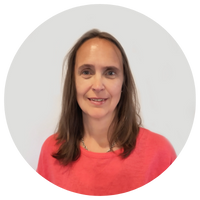
Becky Saunders is Senior Local Development Adviser for Foundations – What Works Centre for Children & Families.
You can read more about Foundations’ work here.

Sally is PEDAL’s Senior Policy Fellow. She has had a varied career in charities and national and local governments, leading teams to develop and implement interventions for families in the early years, and campaigning successfully to drive policy change. Sally joined PEDAL from the Parent-Infant Foundation, where she was Deputy CEO and the creator and first chair of the First 1001 Days Movement, a campaigning alliance of over 200 charities and professional bodies.
Prior to this, Sally’s roles included Strategic Lead at the Maternal Health Alliance, Senior Commissioner in a Local Authority, and Development Manager for Children Under One at the NSPCC. Sally started her career as a Civil Servant working on Children’s Policy in Westminster and, for a short time, in New South Wales, Australia.
She has authored a range of influential policy reports relating to the importance of the earliest years of life and issues affecting families during that time.

